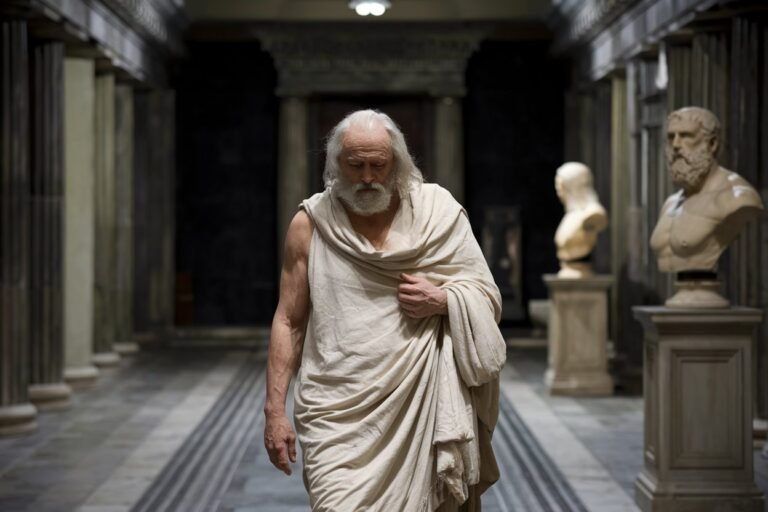Physical Address
304 North Cardinal St.
Dorchester Center, MA 02124

Aristotle, one of the greatest philosophers of ancient Greece, left a profound legacy that continues to influence our thinking, ethics, and philosophy today. His ideas, recorded over 2,300 years ago, are surprisingly applicable in our modern lives, guiding us on the path to wisdom, personal growth, and happiness. This article explores five of Aristotle’s most relevant quotes and discusses how each can be used as a practical tool for navigating the complexities of the 21st century.
Aristotle was born in 384 BC in Stagira, a small town in northern Greece. He was a student of Plato and later became the teacher of Alexander the Great. Aristotle founded the Lyceum, a school in Athens where he taught and developed much of his philosophical thought. Unlike his teacher Plato, who focused on ideal forms, Aristotle was a pioneer in empirical observation, laying the foundation for the scientific method. His works encompass a wide range of subjects, including metaphysics, ethics, politics, logic, and natural sciences. Aristotle’s teachings have deeply influenced Western thought, and his philosophy continues to be studied and applied today.
In today’s fast-paced world, self-awareness is crucial for making informed and authentic decisions.
Understanding one’s strengths, weaknesses, and motivations helps in personal and professional growth.
Self-knowledge fosters emotional intelligence, which is vital for effective communication and relationships.
Regularly reflect on your thoughts, emotions, and behaviors through journaling or meditation.
Seek feedback from trusted friends or mentors to gain different perspectives on yourself.
Practice mindfulness to become more aware of your inner self and reactions.
In a culture of instant gratification, this quote emphasizes the importance of consistency and discipline in achieving success.
Developing good habits leads to long-term benefits, whether in health, career, or personal development.
It highlights that excellence comes from daily practice rather than sporadic effort.
Identify small, actionable steps toward your goals and incorporate them into your daily routine.
Use habit-tracking apps or journals to maintain consistency and motivation.
Focus on progress over perfection—celebrate small wins to build momentum.
With vast amounts of information available, this quote reminds us of the importance of intellectual humility.
It encourages lifelong learning and staying curious rather than complacent.
Understanding the limits of one’s knowledge can lead to more meaningful and respectful discussions.
Read widely across different subjects to expand your understanding of the world.
Engage in discussions with people who have different viewpoints to challenge your thinking.
Accept that it’s okay not to have all the answers and be open to continuous learning.
In an era of polarized opinions, this quote promotes open-mindedness and critical thinking.
It encourages people to consider different perspectives and engage in constructive debates.
It helps prevent knee-jerk reactions and fosters a culture of understanding and tolerance.
Practice active listening—pay attention to what others say without immediately formulating a response.
When faced with opposing views, ask questions to understand the reasoning behind them.
Reflect on your own biases and strive to challenge them by exploring new ideas and perspectives.
In a world where external validation often drives happiness, this quote emphasizes personal responsibility for one’s well-being.
It encourages people to focus on internal factors, such as mindset and choices, rather than external circumstances.
Promotes self-care, gratitude, and positive thinking as paths to a fulfilling life.
Cultivate a gratitude practice by listing things you’re thankful for each day.
Set boundaries to protect your mental and emotional health.
Focus on activities that bring joy and meaning rather than constantly seeking external approval.
Aristotle’s wisdom transcends time and remains highly applicable in our modern lives. Whether it’s developing self-awareness, building good habits, embracing lifelong learning, fostering open-mindedness, or taking responsibility for our own happiness, his teachings offer valuable guidance. By reflecting on these quotes and incorporating their lessons into our daily lives, we can navigate today’s complexities with a bit more wisdom and grace, just as Aristotle would have intended.